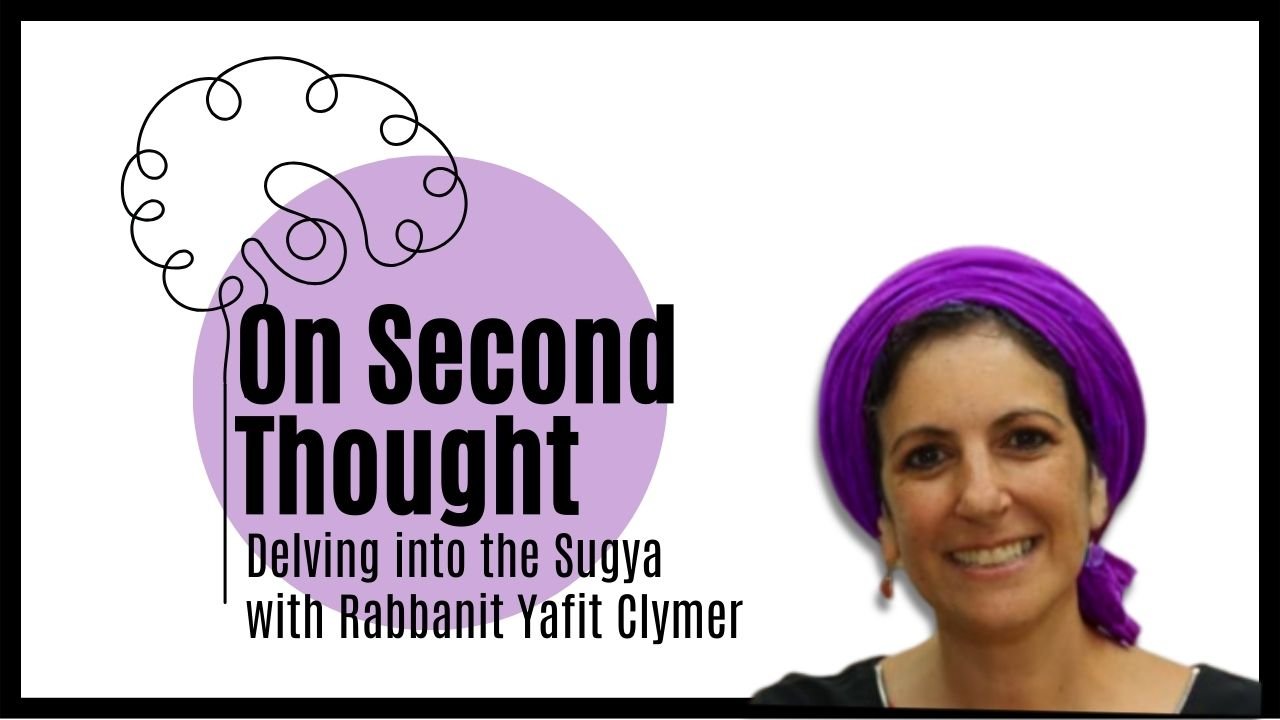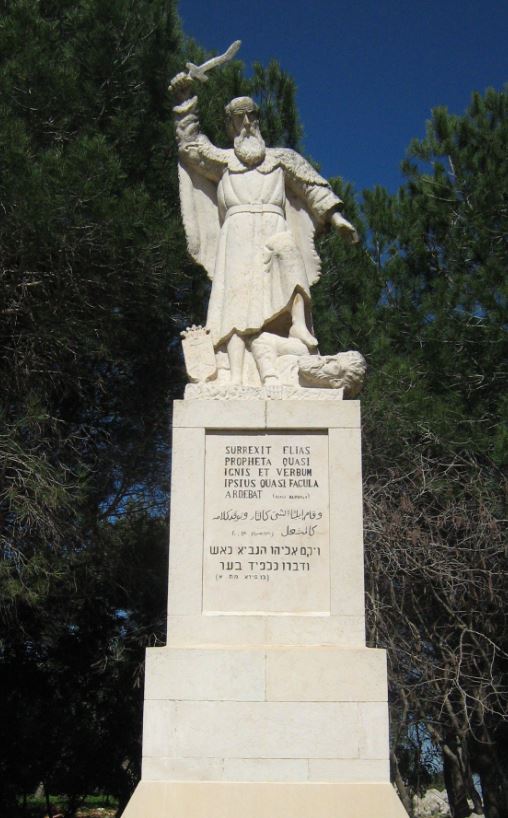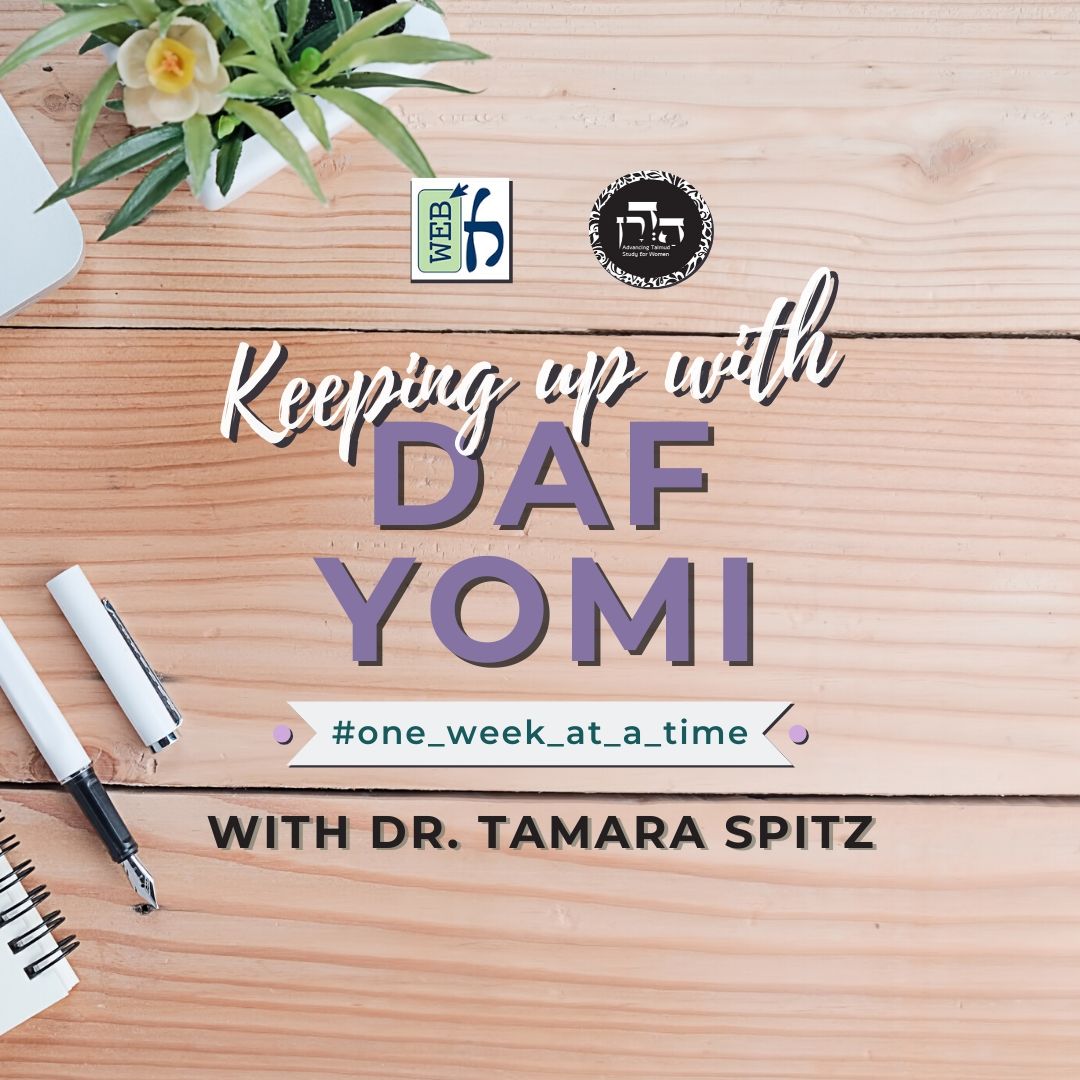What are the upper and lower limits for arakhin? Does a porr person always give one shekel or does it depend on what he can afford? What if he was poor and then became rich? The next mishnayot discuss other situations with outer limits like a woman who gets confused about whether she is bleeding in her Niddah or zava days – how many days does she need to wait to be sure the next time she bleeds will be Niddah? For how many weeks could a person or a house potentially be “closed” (waiting period) for a priest to determine if it has leprosy?
This month’s learning is dedicated to the refuah shleima of our dear friend, Phyllis Hecht, גיטל פעשא בת מאשה רחל by all her many friends who love and admire her. Phyllis’ emuna, strength, and positivity are an inspiration.
Want to dedicate learning? Get started here:


Today’s daily daf tools:
This month’s learning is dedicated to the refuah shleima of our dear friend, Phyllis Hecht, גיטל פעשא בת מאשה רחל by all her many friends who love and admire her. Phyllis’ emuna, strength, and positivity are an inspiration.
Today’s daily daf tools:
Delve Deeper
Broaden your understanding of the topics on this daf with classes and podcasts from top women Talmud scholars.
New to Talmud?
Check out our resources designed to help you navigate a page of Talmud – and study at the pace, level and style that fits you.
The Hadran Women’s Tapestry
Meet the diverse women learning Gemara at Hadran and hear their stories.
Arakhin 8
נָתַן אַרְבַּע לָרִאשׁוֹנָה וְאַחַת לַשְּׁנִיָּה — יְדֵי שְׁנִיָּה יָצָא, יְדֵי רִאשׁוֹנָה לֹא יָצָא, כּוּלְּהוּ מְשַׁעְבְּדָן לְרִאשׁוֹנָה.
By contrast, if he first gave four sela for payment of the first vow and then one sela for payment of the second vow, he has fulfilled his obligation with regard to the second vow, because all he had at that stage was one sela. But he has not fulfilled his obligation with regard to the first vow, because all five sela in his possession were liened for payment of the first vow, and therefore he did not fulfill his obligation by paying only four.
בָּעֵי רַב אַדָּא בַּר אַהֲבָה: הָיוּ בְּיָדוֹ חָמֵשׁ סְלָעִים וְאָמַר ״שֵׁנִי עֶרְכִּי עָלַי״ בְּבַת אַחַת, מַהוּ? כֵּיוָן דִּבְבַת אַחַת נָדַר — כִּי הֲדָדֵי תָּפְסָן, יָהֵיב תַּרְתֵּי וּפַלְגָא לְהַאי וְתַרְתֵּי וּפַלְגָא לְהַאי, אוֹ דִלְמָא כּוּלְּהוּ חַזְיָא לְהַאי וְכוּלְּהוּ חַזְיָא לְהַאי? תֵּיקוּ.
Rav Adda bar Ahava raises a dilemma: If one had in his possession five sela and he said: It is hereby incumbent upon me to donate my valuation twice, and consequently both obligations take effect simultaneously, what is the halakha? One can claim that since he vowed both vows simultaneously, they take effect together, and therefore he gives two and a half sela for this vow and two and a half sela for that vow; or perhaps all of the five sela are fit for this vow and all of them are also fit for that vow, and therefore he must pay five sela for each vow? The Gemara concludes: The dilemma shall stand unresolved.
אֵין בַּעֲרָכִין פָּחוֹת מִסֶּלַע וְלֹא יָתֵר כּוּ׳. הָא תּוּ לְמָה לִי?
§ The mishna teaches at its conclusion that there is no payment of valuations less than a sela; nor is there a payment greater than fifty sela. The Gemara asks: Why do I also need this statement, as this halakha was already stated at the beginning of the mishna?
הָא קָמַשְׁמַע לַן: פָּחוֹת מִסֶּלַע הוּא דְּלֵיכָּא, הָא יָתֵר עַל סֶלַע אִיכָּא; יָתֵר עַל חֲמִשִּׁים הוּא דְּלֵיכָּא, הָא פָּחוֹת מֵחֲמִשִּׁים אִיכָּא, וּסְתָמָא כְּרַבָּנַן.
The Gemara answers: This additional statement teaches us that there is no payment of valuations less than a sela, but, by inference, there is a payment of valuations more than a sela. Similarly, there is no payment of valuations for a sum greater than fifty sela, but there is a payment that is less than fifty sela. And this unattributed statement of the mishna is in accordance with the opinion of the Rabbis, who maintain that if one cannot pay the full amount of the valuation, he pays however much he can afford, even if it is more than a sela, rather than paying only one sela, as stated by Rabbi Meir.
מַתְנִי׳ אֵין ״פֶּתַח בְּטוֹעָה״ פָּחוֹת מִשִּׁבְעָה, וְלֹא יָתֵר עַל שִׁבְעָה עָשָׂר.
MISHNA: If a woman experienced a discharge of blood and is unsure whether it was during her days of menstruation or during the eleven days that would render her a zava, the alleviation of her state of uncertainty does not occur in fewer than seven clean days, nor in more than seventeen clean days, depending on the number of days that she experiences the discharge.
גְּמָ׳ תָּנוּ רַבָּנַן: טוֹעָה שֶׁאָמְרָה ״יוֹם אֶחָד טָמֵא רָאִיתִי״, פִּתְחָהּ שִׁבְעָה עָשָׂר.
GEMARA: The Sages elaborated on the principle of the mishna, as taught in a baraita: With regard to a woman who had a discharge of blood and is unsure whether it was during her days of menstruation or during the eleven days that would render her a zava, who said: I saw one impure day, i.e., I had a discharge of blood for one day, the alleviation of her state of uncertainty occurs after seventeen clean days, i.e., seventeen days without any discharge. If her discharge occurred on the first of her days of menstruation, she has another six days of menstruation followed by eleven days of ziva; if she experiences a discharge after these seventeen clean days, she has certainly returned to her days of menstruation. If the initial discharge had been on any of the other days of the seven-day followed by eleven-day cycle, she would return to her days of menstruation after fewer days, but the definitive alleviation of her uncertainty does not occur until seventeen days.
״שְׁנֵי יָמִים טָמֵא רָאִיתִי״ — פִּתְחָהּ שִׁבְעָה עָשָׂר.
If she said: I saw two impure days, i.e., I had a discharge of blood for two days, the alleviation of her state of uncertainty occurs after she experiences seventeen clean days. If the two days had been at the beginning of the days of her menstrual cycle, she would begin another menstrual cycle if she experienced her next discharge after sixteen clean days. Yet, there is a possibility that the first day of her discharge was on the last of the eleven days of ziva, and the second day was on the first of the days of her menstrual cycle. In that case, she would return to the beginning of her menstrual cycle only after the six remaining days of menstruation followed by eleven additional days, for a total of seventeen.
״שְׁלֹשָׁה יָמִים טָמֵא רָאִיתִי״ — פִּתְחָהּ שִׁבְעָה עָשָׂר.
If she said: I saw three impure days, i.e., I had a discharge of blood for three days, the alleviation of her state of uncertainty occurs after she experiences seventeen clean days, as it is possible that the first two days of discharge were on the last two of the eleven days of ziva, and the third day of discharge was on the first of the days of her menstrual cycle.
״אַרְבָּעָה יָמִים טָמֵא רָאִיתִי״ — פִּתְחָהּ שִׁשָּׁה עָשָׂר.
If she said: I saw four impure days, i.e., I had a discharge of blood for four days, the alleviation of her state of uncertainty occurs after she experiences sixteen clean days. This is because the longest possible interval between these days of discharge and the beginning of her next menstrual cycle would occur if the first two days of discharge were at the end of her days of ziva and the other two were at the beginning of the days of her menstrual cycle. She would then require another five days of menstruation and the eleven days of ziva, for a total of sixteen.
״חֲמִשָּׁה יָמִים טָמֵא רָאִיתִי״ — פִּתְחָהּ חֲמִשָּׁה עָשָׂר. ״שִׁשָּׁה יָמִים טָמֵא רָאִיתִי״ — פִּתְחָהּ אַרְבָּעָה עָשָׂר.
If she said: I saw five impure days, i.e., I had a discharge of blood for five days, the alleviation of her state of uncertainty occurs after she experiences fifteen clean days, to account for the possibility that the first two days of discharge occurred on the last two of the eleven days of ziva and the other three were on her days of her menstrual cycle. If she said: I saw six impure days, i.e., I had a discharge of blood for six days, the alleviation of her state of uncertainty occurs after she experiences fourteen clean days, to account for the possibility that the first two days of discharge occurred at the end of her days of ziva and the other four occurred at the beginning of her days of menstruation.
״שִׁבְעָה יָמִים טָמֵא רָאִיתִי״ — פִּתְחָהּ שְׁלֹשָׁה עָשָׂר.
If she said: I saw seven impure days, i.e., I had a discharge of blood for seven days, the alleviation of her state of uncertainty occurs after she experiences thirteen clean days, to account for the possibility that the first two days of discharge occurred on the last two of the eleven days of ziva and the other five occurred at the beginning of her menstrual cycle. In that case, she would have another two days to conclude her days of menstruation, followed by the eleven days of ziva, before she would start a new menstrual cycle.
״שְׁמוֹנָה יָמִים טָמֵא רָאִיתִי״ — פִּתְחָהּ שְׁנֵים עָשָׂר.
If she said: I saw eight impure days, i.e., I had a discharge of blood for eight days, the alleviation of her state of uncertainty occurs after she experiences twelve clean days, to account for the possibility that the first two days of discharge occurred on the last two of the eleven days of ziva and the other six occurred at the beginning of her menstrual cycle.
״תִּשְׁעָה יָמִים טָמֵא רָאִיתִי״ — פִּתְחָהּ אַחַד עָשָׂר.
If she said: I saw nine impure days, i.e., I had a discharge of blood for nine days, the alleviation of her state of uncertainty occurs after she experiences eleven clean days, to account for the possibility that the first two days of discharge occurred at the end of her days of ziva and the other seven occurred on the days of her menstrual cycle. In that case, she would have only the eleven days of ziva before beginning a new menstrual cycle.
״עֲשָׂרָה יָמִים טָמֵא רָאִיתִי״ — פִּתְחָהּ עֲשָׂרָה. ״אַחַד עָשָׂר״ — פִּתְחָהּ תִּשְׁעָה.
If she said: I saw ten impure days, i.e., I had a discharge of blood for ten days, the alleviation of her state of uncertainty occurs after she experiences ten clean days, to account for the possibility that the first two days of discharge occurred on the last two of the eleven days of ziva and the other eight occurred on the seven days of her menstrual cycle and one additional day. If she said: I saw eleven impure days, i.e., I had a discharge of blood for eleven days, the alleviation of her state of uncertainty occurs after she experiences nine clean days, to account for the worst-case scenario that the first two days of discharge occurred on the last two of the eleven days of ziva and the other nine occurred on the seven days of her menstrual cycle, followed by two additional days.
״שְׁנֵים עָשָׂר״ — פִּתְחָהּ שְׁמוֹנָה.
If she said: I saw twelve impure days, i.e., I had a discharge of blood for twelve days, the alleviation of her state of uncertainty occurs after she experiences eight clean days, to account for the worst-case scenario that the first two days of discharge occurred on the last two of the eleven days of ziva and the other ten occurred on the seven days of her menstrual cycle and the three subsequent days. If so, she would have another eight days until the end of the full eighteen-day cycle, and when she next experiences a discharge it is the beginning of her new menstrual cycle.
״שְׁלֹשָׁה עָשָׂר״ — פִּתְחָהּ שִׁבְעָה.
If she said: I saw thirteen impure days, i.e., I had a discharge of blood for thirteen days, the alleviation of her state of uncertainty occurs after she experiences seven clean days, to account for the possibility that the first two days of discharge occurred on the last two of the eleven days of ziva and the others occurred on the seven days of her menstrual cycle and the four subsequent days. If so, she would be left with only seven more days until the end of the full eighteen-day cycle, and when she next experiences a discharge it is the beginning of her new menstrual cycle.
שֶׁאֵין פֶּתַח בְּטוֹעָה פָּחוֹת מִשִּׁבְעָה, וְלֹא יָתֵר עַל שִׁבְעָה עָשָׂר.
All this shows that there is no alleviation of a woman’s state of uncertainty if she had a discharge of blood and is unsure whether it was during her days of menstruation or during her days of ziva in fewer than seven clean days and in no more than seventeen clean days.
אֲמַר לֵיהּ רַב אַדָּא בַּר אַהֲבָה לְרַבָּה: לְמָה לִי כּוּלֵּי הַאי? תִּימְנֵי שִׁבְעָה וְתִשְׁתְּרֵי!
Rav Adda bar Ahava said to Rabba: Why do I need all of these clean days? Let her count a mere seven clean days and be permitted to her husband. Regardless of whether the bleeding occurred during her days of menstruation or during her days of ziva, a woman can immerse in a ritual bath and become ritually pure and permitted to her husband after a maximum of seven clean days.
אֲמַר לֵיהּ: לְתַקּוֹנַהּ לִידֵי נִדָּה וּפִתְחָהּ קָאָמְרִינַן.
Rabba said to him: We say that she must experience seventeen clean days only with regard to setting her right concerning her status as a menstruating woman and the alleviation of her state of uncertainty. It is true that a woman can always become permitted to her husband after seven clean days. The discussion in the mishna and baraita concerns the resolution of uncertainty about whether her next discharge of blood will render her a menstruating woman or a zava. This is significant because if she is menstruating she can become ritually pure and permitted to her husband after seven days even if none of them are clean days, whereas if the discharge occurred over one or two days during the eleven days of ziva, she becomes pure after one clean day; and if the bleeding lasts three days or more during that time, she must wait for seven clean days.
תָּנוּ רַבָּנַן: כׇּל הַטּוֹעוֹת זָבוֹת, מְבִיאוֹת קׇרְבָּן וְאֵינוֹ נֶאֱכָל, חוּץ מִפִּתְחָהּ שִׁבְעָה וּפִתְחָהּ שְׁמוֹנָה, שֶׁמְּבִיאוֹת קׇרְבָּן וְנֶאֱכָל.
§ The Sages taught in a baraita: All women who experience a discharge of blood and are unsure whether it is during the days of menstruation or the days of ziva are considered zavot. Therefore, they must bring the offering of a zava, in case they have this status; but it is not eaten by the priests, due to the possibility they were not actually zavot. This is the case for all women, except for a woman who experiences a discharge for thirteen consecutive days, whose alleviation of her state of uncertainty occurs after seven clean days, and for a woman who experiences a discharge for twelve consecutive days, whose alleviation of her state of uncertainty occurs after eight clean days. In those two instances, the women bring the offering of a zava and it is eaten by the priests.
אַטּוּ כׇּל הַטּוֹעוֹת זָבוֹת? וְתוּ, יוֹם אֶחָד וּשְׁנֵי יָמִים בַּת אֵיתוֹיֵי קׇרְבָּן הִיא?
The Gemara asks: Is that to say that all women who experience a discharge of blood and are unsure whether it is during the days of menstruation or the days of ziva are considered zavot? It is in fact unknown whether they are menstruating or are zavot. And furthermore, is a woman who experienced a discharge for one day or for two days fit to bring an offering? Only a zava who experienced a discharge for three consecutive days is required to bring an offering.
אֶלָּא, כׇּל זָבוֹת הַטּוֹעוֹת מְבִיאוֹת קׇרְבָּן וְאֵינוֹ נֶאֱכָל, חוּץ מִפִּתְחָהּ שִׁבְעָה, וּפִתְחָהּ שְׁמוֹנָה, שֶׁמְּבִיאוֹת קׇרְבָּן וְנֶאֱכָל.
The Gemara answers: Rather, the baraita means that all zavot, i.e., women who experienced a discharge for three consecutive days, who are unsure whether their discharge took place during the seven days of menstruation or the eleven days of ziva, can become ritually pure after seven clean days, at which point they bring an offering, but it is not eaten by the priests. This, the baraita continues, is the case for all women except for a woman who experiences a discharge for thirteen consecutive days, whose alleviation of her state of uncertainty occurs after seven clean days, and for a woman who experiences a discharge for twelve consecutive days, whose alleviation of her state of uncertainty occurs after eight clean days. These women bring the offering of a zava and it is eaten by the priests.
מַתְנִי׳ אֵין בִּנְגָעִים פָּחוֹת מִשָּׁבוּעַ אֶחָד, וְלֹא יָתֵר עַל שְׁלֹשָׁה שְׁבוּעוֹת.
MISHNA: There are symptoms of leprosy that a priest will immediately confirm to be ritually pure or ritually impure, and there are others for which the priest quarantines the leper in order to determine his status. With regard to leprous marks, there is no quarantine that is less than one week and none greater than three weeks.
גְּמָ׳ פָּחוֹת מִשָּׁבוּעַ — נִגְעֵי אָדָם, וְלֹא יָתֵר עַל שְׁלֹשָׁה שְׁבוּעוֹת — נִגְעֵי בָתִּים.
GEMARA: When the mishna states that there is no period of quarantine less than one week, it is referring to leprous marks that affect a person, as the priest issues a definitive decision about leprous symptoms on an inflammation or a burn after one week (see Leviticus 13:18–28). When the mishna states: And none greater than three weeks, it is referring to leprous marks that affect houses, as there are instances when a definitive decision is rendered only after the house has been quarantined for three weeks.
אָמַר רַב פָּפָּא: ״צִדְקָתְךָ כְּהַרְרֵי אֵל״ — אֵלּוּ נִגְעֵי אָדָם, ״מִשְׁפָּטֶיךָ תְּהוֹם רַבָּה״ — אֵלּוּ נִגְעֵי בָתִּים.
§ Rav Pappa says: In the phrase: “Your benevolence is like the mighty mountains” (Psalms 36:7), these acts of benevolence are referring to leprous marks that affect a person. When God punishes someone with benevolence, He afflicts the individual with leprous symptoms on his body that can be resolved in just one week. When the verse continues with the phrase, “Your judgments are like the great deep,” these judgments are referring to leprous marks that appear on houses, the status of which can take up to three weeks to be determined.
פְּשָׁטֵיהּ דִּקְרָא בְּמַאי כְּתִיב? אָמַר רַב יְהוּדָה: אִלְמָלֵא ״צִדְקָתְךָ כְּהַרְרֵי אֵל״ — מִי יוּכַל לַעֲמוֹד לִפְנֵי ״מִשְׁפָּטֶיךָ תְּהוֹם רַבָּה״. רַבָּה אָמַר: ״צִדְקָתְךָ כְּהַרְרֵי אֵל״ — מִפְּנֵי שֶׁ״מִּשְׁפָּטֶיךָ תְּהוֹם רַבָּה״.
The Gemara asks: To what does the plain meaning of the aforementioned verse refer? Rav Yehuda said that the plain meaning of the verse is as follows: If not for the fact that Your benevolence is like the mighty mountains, who could withstand Your judgments, which are like the great deep? Rabba says the verse should be understood differently: Your benevolence is like the mighty mountains, because Your judgments are like the great deep.
בְּמַאי קָמִיפַּלְגִי? בִּדְרַבִּי אֶלְעָזָר וְרַבִּי יוֹסֵי בְּרַבִּי חֲנִינָא, דְּאִיתְּמַר: רַבִּי אֶלְעָזָר אָמַר: כּוֹבֵשׁ, רַבִּי יוֹסֵי בְּרַבִּי חֲנִינָא אָמַר: נוֹשֵׂא.
The Gemara asks: With regard to what principle do Rav Yehuda and Rabba disagree? The Gemara answers that they disagree with regard to the dispute between Rabbi Elazar and Rabbi Yosei, son of Rabbi Ḥanina, about how God applies His attribute of “abundant in kindness” (Exodus 34:6) when He judges a person whose merits and sins are equal. As it was stated that Rabbi Elazar says: He hides away some sins and does not put them on the scale, thereby allowing the merits to outweigh the sins. Rabbi Yosei, son of Rabbi Ḥanina, says: He lifts the side of the scale that holds the sins so that the merits outweigh the sins.
רַבָּה כְּרַבִּי אֶלְעָזָר, וְרַב יְהוּדָה כְּרַבִּי יוֹסֵי בְּרַבִּי חֲנִינָא.
The Gemara explains the connection between the two disputes: Rabba holds in accordance with the opinion of Rabbi Elazar, and therefore he interprets the verse as saying that God is benevolent because He discards one’s judgments, i.e., sins, by throwing them to the great deep, thereby allowing his merits to outweigh his sins. And Rav Yehuda holds in accordance with the opinion of Rabbi Yosei, son of Rabbi Ḥanina, and therefore he interprets the verse to mean that God lifts the side of merits as high as the mighty mountains, and were it not for this act of benevolence no one could stand before God’s judgments, which are like the great deep.
מַתְנִי׳ אֵין פּוֹחֲתִין מֵאַרְבָּעָה חֳדָשִׁים הַמְעוּבָּרִים בְּשָׁנָה, וְלֹא נִרְאָה יָתֵר עַל שְׁמוֹנָה. שְׁתֵּי הַלֶּחֶם אֵין נֶאֱכָלִין פָּחוֹת מִשְּׁנַיִם, וְלֹא יָתֵר עַל שְׁלֹשָׁה. לֶחֶם הַפָּנִים אֵין נֶאֱכָל פָּחוֹת מִתִּשְׁעָה, וְלֹא יָתֵר עַל אַחַד עָשָׂר.
MISHNA: No fewer than four full thirty-day months may be established during the course of a year, and it did not seem appropriate to establish more than eight. The two loaves that are brought to the Temple on Shavuot are eaten by the priests not before the second and not after the third day from when they were baked. The shewbread is eaten not before the ninth day from when it was baked, which is the situation in a regular week when the bread is baked on Friday and eaten on the following Shabbat; and not after the eleventh day, when the two Festival days of Rosh HaShana occur on Thursday and Friday, as the shewbread is baked on Wednesday and not eaten until the following Shabbat.
אִין קָטָן נִימּוֹל פָּחוֹת מִשְּׁמוֹנָה, וְלֹא יָתֵר עַל שְׁנֵים עָשָׂר.
A minor boy is not circumcised before the eighth day after his birth and not after the twelfth day. Normally a newborn is circumcised on his eighth day. If he was born during twilight, which an uncertain period of day or night, he is circumcised on what would be the eighth day of his birth if he is was born at night, which is the ninth day if he was born during the day. If he was born during twilight on Shabbat eve, the circumcision cannot be performed on Friday, as he might have been born on Shabbat and therefore Friday is only the seventh day. And the circumcision cannot be on Shabbat, as perhaps he was born on Friday and only circumcision performed on the eighth day overrides Shabbat. Therefore, it is postponed until after Shabbat. If two days of Rosh HaShana occur on Sunday and Monday, the circumcision is postponed until Tuesday, the twelfth day after birth.
גְּמָ׳ מַאי ״לֹא נִרְאָה יָתֵר עַל שְׁמֹנָה״? אָמַר רַב הוּנָא: לֹא נִרְאָה לַחֲכָמִים לְעַבֵּר יָתֵר עַל שְׁמוֹנָה. מַאי שְׁנָא תִּשְׁעָה דְּלָא? אִם כֵּן
GEMARA: The Gemara asks: What is the meaning of the statement of the mishna that it did not seem appropriate to establish more than eight? Rav Huna says: It did not seem appropriate to the Sages to extend more than eight months in a year and establish them as full, thirty-day months. The Gemara asks: What is different about nine months, in that the Sages did not deem it appropriate to establish that many full months in one year? Apparently, the Sages were concerned that if so, i.e., if there were that many full months,









































